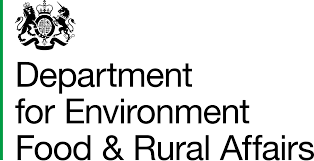PRESS RELEASE : First national Marine and Coastal Wildlife Code launched [May 2023]
The press release issued by the Department for Environment, Food and Rural Affairs on 24 May 2023.
Code will protect animals and habitats and help people enjoy England’s coast responsibly.
The government has today (Wednesday 24 May) launched England’s first-ever national Marine and Coastal Wildlife Code which offers friendly advice and guidance to help people visit the coast responsibly.
Home to around 95% of Europe’s grey seal population and around 25% of Europe’s breeding seabirds, the British coastline supports many iconic species and habitats. It is also a special place for people to visit, and ongoing work to establish the King Charles III England Coast Path – which when complete will be the longest waymarked coastal path in the world at over 2,700 miles – is helping more people than ever to access these environments.
However, as visitors to our coastlines rise, it is important to ensure that our precious marine wildlife remains as undisturbed as possible. Young seals, for example, can use up vital energy if startled by people getting too close or being too noisy, meaning young pups struggle to haul out of the water to rest and digest their food. In a bad year of disturbance, only 25% are likely to survive to the age of 18 months.
Developed in collaboration with organisations including Whale and Dolphin Conservation, the RSPB, Shark Trust and Cornwall Seal Group Research Trust, the Marine and Coastal Wildlife Code includes advice for those walking along the coast or taking part in water-based activities such as kayaking, paddleboarding or jet skiing.
It offers specific guidance around animals such as seabirds, seals, dolphins, sharks and turtles, including information on breeding seasons and how species might react to disturbance.
Marine Minister Lord Benyon said:
Ensuring everyone has access to nature is a priority for this government – but is it absolutely vital that people enjoy nature responsibly.
The Marine and Coastal Wildlife Code will enable everyone to make the most of our treasured outdoor places whilst protecting the very species and habitats that make our coastline so special.
The government’s Environment Improvement Plan pledged everyone should live within 15 minutes’ walk of a green or blue space, and the Marine and Coastal Wildlife Code will help ensure they can do so in a way that does not harm the environment.
Visitors can disturb wildlife by: approaching animals to take photos; crowding or circling them; making noise; losing control of their dog; or damaging and changing habitats.
The Cornish Wildlife Trust has reported that disturbance incidents, such as those involving coastal walkers, jet-skis and paddle sports, have more than tripled in Cornwall since 2014. Disturbance is reported to be one of the greatest threats to Britain’s breeding seabirds.
The Code also gives guidance on how to report injured, distressed or dead animals, including through the Cetacean Strandings Investigation Programme (CSIP). Working with CSIP, Defra have announced almost £700,000 to fund much-needed research to help protect harbour and grey seals in our waters.
Sue Sayer, from Cornwall Seal Group Research Trust, said:
Seals need space to rest, digest, moult and pup. Yet findings from the Seal Research Trust revealed seals are routinely or frequently disturbed by human activity, causing them to use up vital energy and meaning some seals are sadly unable to survive.
Our GIVE SEALS SPACE campaign is already raising awareness and we are delighted to welcome the launch of the Marine and Coastal Wildlife Code which will provide a single code of best practice to help everyone understand what they can do to help protect valuable marine wildlife as we all enjoy our staggering coastal habitat.
Kirsten Carter, Marine Principal Policy Officer at the RSPB, said:
As well as being fantastic places to visit and have fun, our coastline and beaches are home to amazing marine wildlife and globally important seabird populations. Sadly, many species are under huge pressure, including from the impacts of disturbance as visitor numbers increase and disease such as bird flu.
Everyone has a part to play in protecting nature, and England’s first Marine and Coastal Wildlife Code shows how we can all enjoy our time at the coast while helping to safeguard wildlife at the same time.
Dr Carla Boreham, Director of Campaigns for Whale and Dolphin Conservation, said:
Whales and dolphins are at significant and increasing risk of harm from the impact of human disturbance. It’s important for people to understand and follow the new code so that marine mammals aren’t injured or distressed when paddleboards, boats or other vessels are around.
The Marine and Coastal Wildlife Code builds on the existing Countryside Code, which provides helpful advice and guidance for an enjoyable and safe trip to the outdoors.



